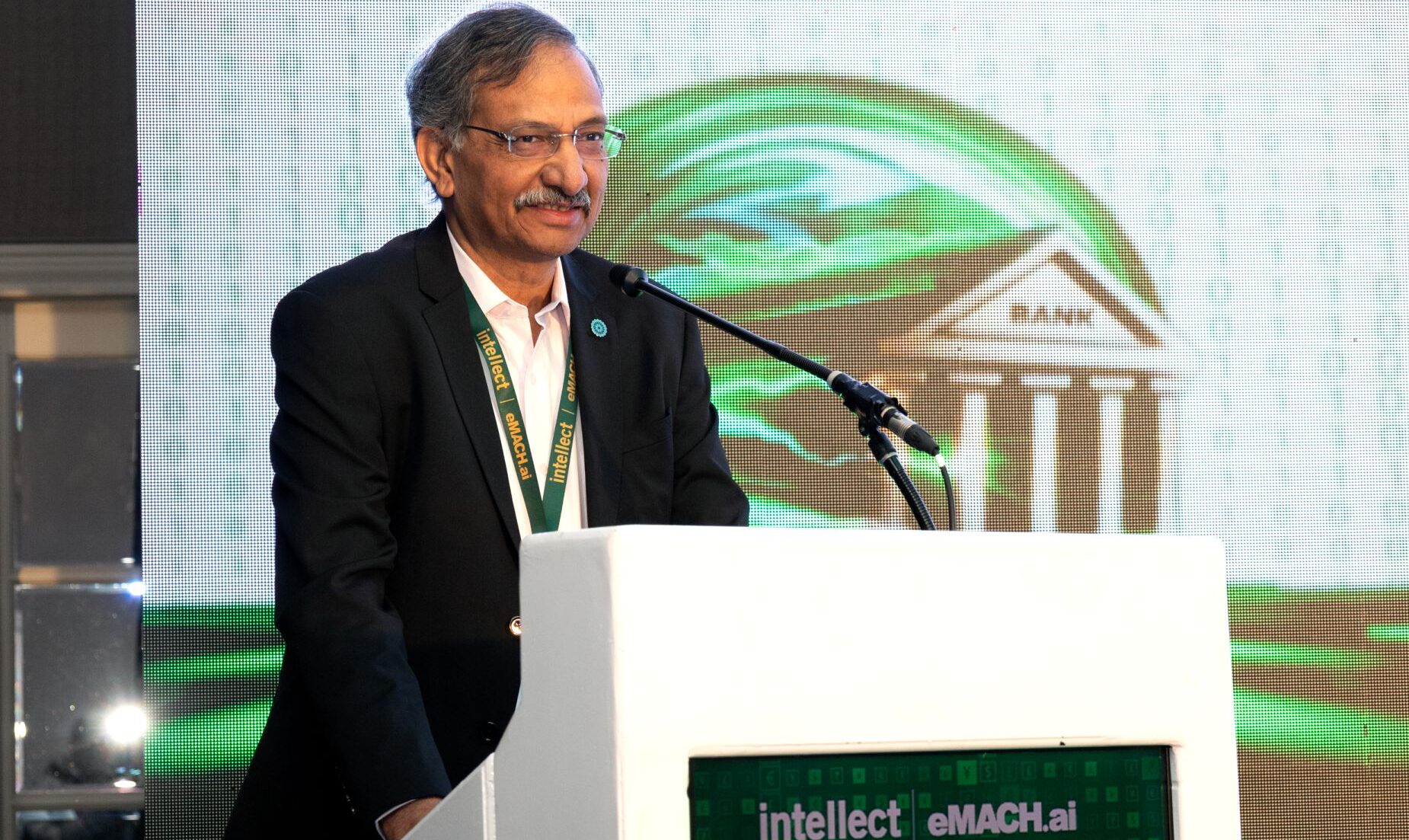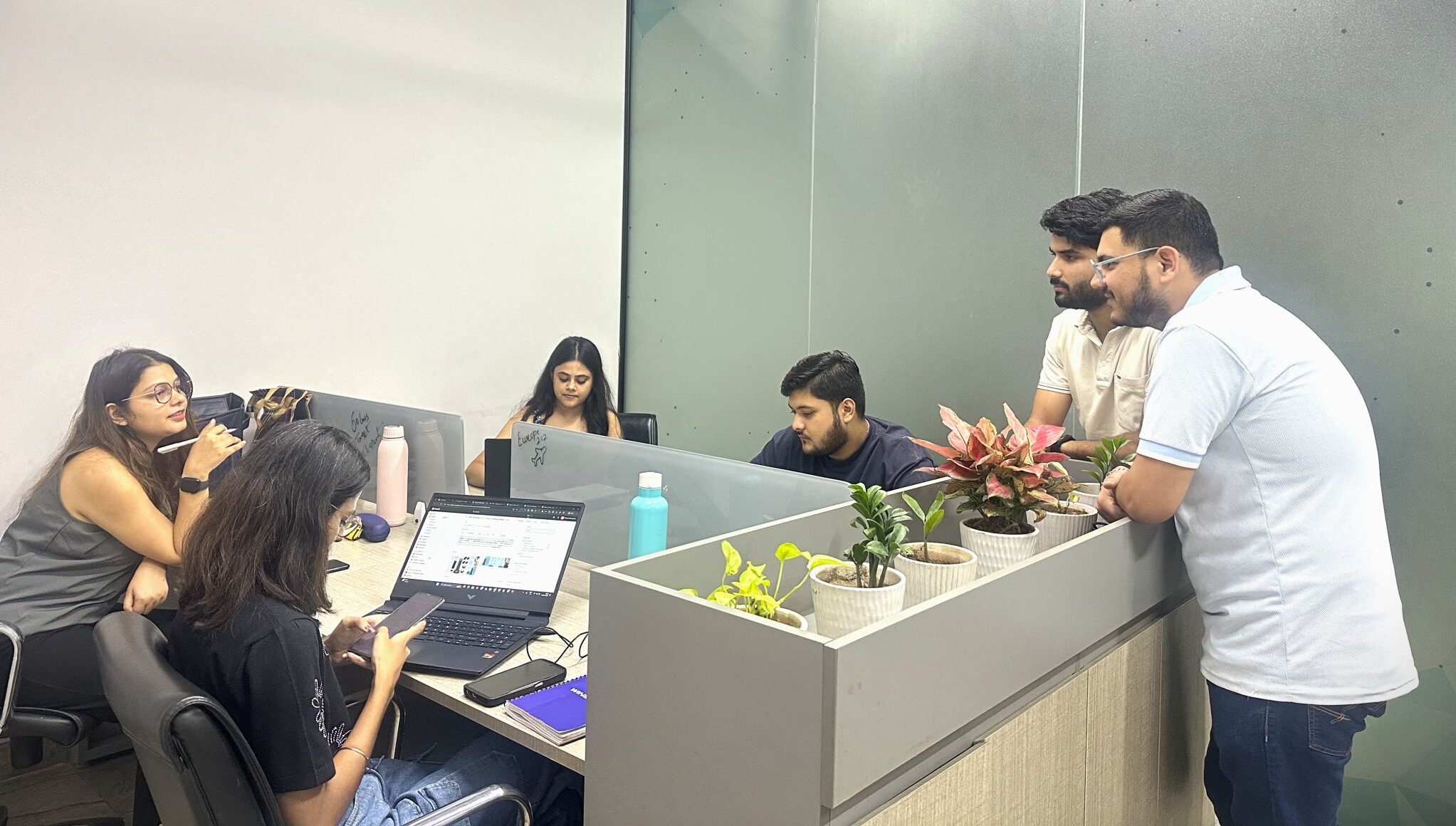A growing number of India’s artificial intelligence startups are shifting their headquarters to the United States in pursuit of the classic American tech dream. Many of these companies, founded on Indian soil are relocating or registering in U.S. tech hubs like Silicon Valley, following a path blazed by earlier Indian SaaS firms.
Their goal: to tap into deeper pools of risk capital, customer access, and cutting-edge innovation. As The Economic Times reports, a “slew of artificial intelligence-focused startups founded by Indian entrepreneurs are making a beeline for the US” to find more AI-savvy investors and to be closer to primary markets. This trend, reminiscent of the SaaS boom of the last decade, is reshaping strategies for India’s tech founders in the AI era.
Why Shift to the U.S.?
Several compelling factors are driving this headquarters migration. Founders and investors cite the following key reasons:
- Investor Support & Risk Capital: In India, AI startups often struggle with longer fundraising cycles and conservative capital. By contrast, U.S. venture investors are more willing to take bold bets on emerging AI innovations. “In the US, investors take a bet on what the world is going to look like if [an idea] takes off. Very few Indian investors look at it that way,” says Sudarshan Kamath, co-founder of Smallest.ai, explaining his company’s move from India to San Francisco. Indian investors, he notes, tend to be less patient with long-term bets, whereas “US investors have deeper tech understanding… and are willing to back bold ideas in the long run”. This appetite for risk and technological vision in the U.S. provides AI startups easier access to larger funding rounds and higher valuations.

- Market Access & Customer Proximity: The United States is the world’s largest enterprise technology market, and many Indian AI startups target U.S. customers for scale. Being based in America can significantly boost credibility and ease of doing business. Baskar Subramanian, CEO of Amagi (a Bangalore-founded media tech firm now headquartered in New York), observes that a U.S. base “helps startups enhance trust in the eyes of their customers, access technology ecosystem partners, and create pathways for realizing IPO aspirations”.

Moreover, proximity matters for client feedback. “When your early customers are B2B startups within the same square mile in San Francisco, I can walk into their offices, work with them directly… and ensure they’re truly happy. That drives our product decisions,” says Soham Ganatra, co-founder of AI platform Composio. Being on the ground in the U.S. allows founders to meet clients frequently and tailor solutions quickly, an advantage hard to replicate from India.
- Epicenter of AI Innovation: Silicon Valley remains the global epicenter for AI research and talent, from big tech labs to new AI startups. Indian entrepreneurs feel the need to “be where the action is.” “The bulk of the innovation [in AI] happens in the US,” notes Naganand Doraiswamy of Ideaspring Capital, adding that while India contributes to research, “everything happens in the (Silicon) Valley”. By relocating, founders gain a ringside view of fast-moving technological advances. Siva Rajamani, co-founder of Everstage, says being in the Bay Area means “you’re faster to get to know what’s the latest that’s happening… You can take decisions for your company much earlier than you would sitting in India”. This real-time immersion in the AI ecosystem, through meetups, beta programs, and informal networks, can be crucial. Vijay Rayapati, founder of Atomicwork, recounts that in just “2 days at a Silicon Valley summit, I could meet Bill Gates, Sam Altman, Parag Agrawal… It’s impossible to get this kind of access and density anywhere else”. Such networks can translate into early access to AI breakthroughs and talent.

- Talent and Acquihires: Operating in the U.S. also grants Indian startups access to a vast pool of specialized AI talent and potential hires from top global universities and companies. While India has excellent engineers, certain deep-tech skills and experienced AI researchers are more densely concentrated in American tech hubs. Founders say the “density of people, talent, [and] ideas” in places like San Francisco is unparalleled. This talent concentration helps in building cutting-edge products and forging collaborations that would be harder from afar.
- Strategic Advantages & Future Exits: Incorporating in the U.S. provides regulatory and strategic benefits. It simplifies setting up partnerships and can enable smoother eventual public listings on U.S. exchanges. For example, many Indian-origin startups that became unicorns, from Freshworks to Chargebee, flipped to U.S. domiciles early to keep the door open for a Nasdaq IPO or global M&A. Additionally, certain tech sectors (like fintech or crypto) prefer jurisdictions with clearer regulations, prompting startups to incorporate overseas. While AI itself may not have heavy regulatory barriers yet, the overarching sentiment is that a U.S. base offers global positioning and flexibility for the future.
Impact on Growth and Operations
For the startups that make this leap, the move is largely paying off. By situating their headquarters stateside, Indian AI companies report improved fundraising prospects and closer engagement with their core market. “If you raise your seed round in India and want to raise your next round from the US, your options open up if you’re based out of the Bay Area,” notes Everstage’s Siva Rajamani, highlighting the fundraising boost that a U.S. presence confers.
Indeed, investors in Silicon Valley often prefer founders to be “on the ground” where they can build trust face-to-face. This has led to a virtuous cycle: startups relocating to the U.S. attract bigger checks, which in turn fuels faster product development and expansion.
Companies have also evolved hybrid operating models as they expand West. Many follow what one founder called the “Israeli model”, keeping a strong engineering base in India while moving product management, marketing, and sales leadership to the U.S.. “Engineering can be in India… but product management, GTM, marketing, all these have to be in the US. This is what a modern global company looks like,” explains Arvind Parthiban, founder of SuperOps, who himself relocated after initially building from Chennai.

This approach lets startups leverage India’s cost-effective tech talent while benefiting from close proximity to U.S. customers and partners. Everstage, RocketLane, Atomicwork, and others have all kept the bulk of their developers in India even as founders shifted westward. “You can’t afford to lose the India team connection,” cautions Atomicwork’s Vijay Rayapati, noting that founders often shuttle between continents to keep teams aligned.
The move to the U.S. has frequently coincided with strong business outcomes. Freshworks, for instance, was founded in Chennai but moved its headquarters to California a few years into its journey; it now counts over 2,500 employees worldwide and went on to become the first Indian SaaS company to list on Nasdaq in 2021. Innovaccer, a health-tech AI startup born in New Delhi, shifted its base to San Francisco early on, today all of its revenue comes from U.S. healthcare clients and it reached a multi-billion-dollar valuation in recent years.
Another success story is Uniphore, a conversational AI startup incubated at IIT Madras in 2008. After years of operating from Chennai, Uniphore’s founders eventually relocated to Silicon Valley to scale globally. The company’s CEO Umesh Sachdev reflects that in hindsight he wishes they had moved sooner: “If I had the opportunity I would’ve done it sooner… we had to raise sufficient funding to start investing in the US and it just took time”. Since the move, Uniphore has seen explosive growth, raising $400 million in a 2022 funding round and reaching a $2.5 billion valuation as a leader in call-center AI.

Even hardware-focused deep tech startups are benefiting. GreyOrange, a robotics and AI company founded in New Delhi, decided to shift its global headquarters to Atlanta in 2021 to be nearer to clients and the supply-chain tech ecosystem.
Founded in New Delhi, India, GreyOrange is relocating its global headquarters to metro Atlanta, noted an official Georgia state announcement, highlighting that the company’s key leadership and go-to-market teams are now U.S.-based. This move positioned GreyOrange to better serve its international customers and hire local experts, demonstrating that the U.S. appeal isn’t limited to software startups alone.
Real Examples of the Transition
To put a face on this trend, here are a few notable Indian-founded startups that have “flipped” their headquarters to the U.S.:
- Freshworks (Chennai → California): A customer support software startup founded in 2010 by Girish Mathrubootham. Freshworks moved its base to San Mateo, CA, and grew rapidly, as of 2019 it was “San Mateo and Chennai-headquartered” with multiple U.S. offices. Its U.S. presence helped it win North American clients and facilitated an IPO on the Nasdaq, achieving a market cap over $10 billion on debut.
- Uniphore (Chennai → Palo Alto): An AI firm specializing in conversational automation, started in India in 2008. After relocating to Palo Alto to tap U.S. investors and clients, Uniphore closed one of the largest funding rounds in AI ($400M Series E) and is now valued at $2.5B. “Eventually we shifted base to the US to become a Silicon Valley, headquartered company,” the founders noted, as the U.S. became its primary market.
- Innovaccer (Noida → San Francisco): Founded in 2014, this health AI platform set up dual headquarters in Noida and San Francisco, with the U.S. driving its business. The San Francisco-and Noida-headquartered company provides healthcare analytics to major American hospital systems. By 2021 it reached unicorn status, and its CEO said all of its revenue was coming from the U.S., where half of global healthcare spending occurs.
- GreyOrange (New Delhi → Atlanta): Launched in India in 2011, GreyOrange makes AI-driven warehouse robots. It chose Atlanta for its global HQ in 2021, seeking proximity to U.S. logistics hubs. “Founded in New Delhi… GreyOrange [now] leverages artificial intelligence and robotics to optimize fulfillment” from its Georgia base. The move brought GreyOrange closer to large retail clients and helped it hire American executives, illustrating a hardware startup’s route to U.S. expansion.
- Smallest.ai (Bengaluru → San Francisco): A next-gen voice-AI startup that recently registered in the U.S. Sudarshan Kamath, the co-founder, moved the HQ citing Indian VCs’ reluctance on risky bets. Long fundraising cycles in India and gaps in understanding pushed them stateside. Now in San Francisco, Smallest.ai is raising a new round at a higher valuation, thanks to interest from U.S. investors familiar with voice-agent tech.
- Genloop (India → U.S.-bound): An AI startup customizing large language models, Genloop is preparing to establish in the U.S. for easier funding. Founder Ayush Gupta notes Indian investors’ “low patience” for long-term AI plays, whereas U.S. backers “stay closer to market shifts” and support bold ideas. This outlook is steering Genloop’s expansion to American shores.
These examples underscore a pattern: time and again, Indian startups with global ambitions find a footing in the U.S. to supercharge their growth. They often maintain substantial operations in India, tapping the talent and cost advantages, but situate their leadership and incorporation in America to unlock global opportunities.
Balancing Both Worlds
Interestingly, this migration doesn’t mean abandoning India. Most founders still view India as an essential development base and a source of strength. Many startups maintain large R&D centers in Bengaluru, Chennai, or Noida even as CEOs sit in California. “Founders are structuring their teams carefully, often following the Israeli model, keeping around 90% of their team in India, while key leaders move to the US,” notes a report on the trend.
The lower costs and abundant engineers in India complement the market access of a U.S. HQ. As Arvind Parthiban of SuperOps puts it, the traditional India cost advantage has eroded in the AI age (anyone can build from anywhere), so a “global company” wisely distributes teams across geographies for maximum advantage.
Not everyone agrees that shifting base is a necessity, a few contrarian founders still choose to remain rooted at home. Sanket Shah, founder of video AI startup InVideo, argues that a strong team in India can achieve world-class outcomes without relocating. “If I can build a strong, original-thinking culture here, I don’t need to go to the US. Everything I need to learn is available online,” Shah told Moneycontrol, suggesting that intent and execution matter more than zip code. But for every stay-back story, there are many others voting with their feet and flying west.
For now, the gravitational pull of the U.S. tech ecosystem is unmistakable. In the high-stakes race to master AI, many Indian founders feel that physical proximity equals power. “The market is moving so fast that if you miss a quarter of learning, you’re probably outpaced by someone who didn’t [move],” observes Siva Rajamani.
In other words, being in Silicon Valley can make the difference between leading the pack or lagging behind. The consensus among this new cohort is captured by an industry editor who wrote: building for the world might still be possible from India, “but building with the world, at its very pace, often demands being where the action is. And right now, that’s the Valley”.
As Indian AI startups continue to shift their headquarters overseas, they carry with them the ambition and ingenuity fostered at home, now supercharged by the networks, capital, and energy of the United States. It’s a modern tale of globalization: innovate in India, expand in America, and build a company that straddles both to achieve true global scale. The coming years will reveal how this strategy pays off, but early signs suggest that for many of India’s AI entrepreneurs, the road to success runs through Silicon Valley’s streets.
Also Read: Why Indian AI Startups Are Avoiding Domestic Clients
























